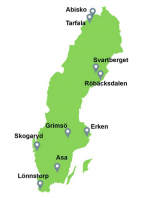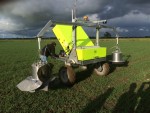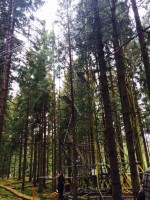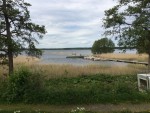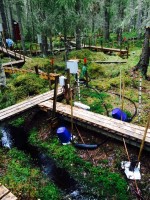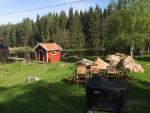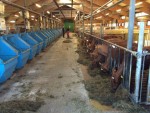In May, I represented the Long Term Ecological Research (LTER) Network at a meeting of the governing board of the Swedish Infrastructure for Ecosystem Science (SITES) network. SITES constitutes a nationally-coordinated network of research infrastructure for terrestrial and limnological field research that is open to all researchers. Nine research stations make up SITES, which is supported by the Swedish Research Council and five partner organizations (University of Gothenburg, Swedish Polar Research Institute, Swedish University of Agricultural Sciences, Stockholm University and Uppsala University).
SITES is hosted and coordinated by the Swedish University of Agricultural Sciences (SLU) through a secretariat led by Tomas Lundmark, a Professor in the Department of Forest Ecology. An independent board appointed by the Vice-Chancellor of SLU governs the organization and sets priorities for infrastructure development based on a national perspective on research needs.
The nine SITES research stations represent a broad range of Swedish ecosystems including agricultural land, forests, mountains, wetlands, several types of inland waters, boreal catchments, and tundra. As an invited guest, I was able to visit five of the nine stations (Grimsö, Skogaryd, Svartberget, Röbäcksdalen, and Erken), and I was very favorably impressed by the research being conducted at each site. All of the stations in the network are interested in building partnerships with U.S. research stations and attracting new scientists to work at their sites.
The SITES network is well-funded and represents an excellent opportunity for collaboration with LTER sites. I expect that several SITES researchers will attend the upcoming All Scientists Meeting, and I know they will be happy to talk about their research. In the meantime, you can find further information at http://www.fieldsites.se/en/.

 Enlarge this image
Enlarge this image